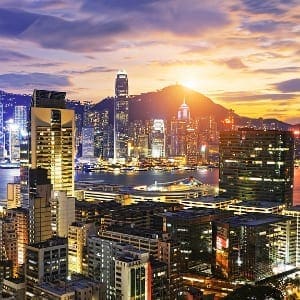 The Hospitality Asset Managers Association (HAMA) Asia/Pacific has predicted an investment “gold rush” in the Asia Pacific region as forward-thinking hotel owners reposition and reinvest in underperforming properties. HAMA chapters globally include members who are responsible for approximately 6,700 hotels with 1.4 million rooms.
The Hospitality Asset Managers Association (HAMA) Asia/Pacific has predicted an investment “gold rush” in the Asia Pacific region as forward-thinking hotel owners reposition and reinvest in underperforming properties. HAMA chapters globally include members who are responsible for approximately 6,700 hotels with 1.4 million rooms.
At HAMA’s 2018 Global Leaders Meeting, which took place in Hong Kong on 17 October, delegates heard that this potential wave of investment is being driven by a series of stiff challenges that are now facing many hotel owners in the Asia Pacific.
The foremost challenge is the surging level of hotel room supply now being injected into the region. STR recently revealed that there are now over 370,000 new rooms under construction across the Asia Pacific, and a further 350,000 in the planning stages. This influx is placing huge pressure on existing hotels to maintain occupancy and rates. In addition, ill-conceived developments, challenging locations and shifting market trends are causing hundreds of Asian hotels to underperform.
But from these threats, opportunities arise. According to HAMA A/P, hotel owners can succeed if they take decisive action, such as reinvesting in their own projects, repositioning them for a changing market, or even converting their assets to another use. There will also be opportunities to purchase and reposition underperforming hotels. Combined, these factors could lead to a potential gold rush of regional reinvestment.
In light of these trends, it is no surprise that an increasing number of hotel owners in the Asia Pacific are turning to the services of professional asset managers, or bringing these experts in-house. Speaking at the 2018 Global Leaders Meeting, Eric Levy, Managing Director of Tourism Solutions International (TSI) and President of HAMA’s Asia Pacific Chapter, revealed a sharp rise in the portfolios of HAMA’s regional members.
“Our organisation in Asia has grown from nothing less than a decade ago to become a strong player within the industry regionally. Properties under the guidance of HAMA’s members have regionally grown approximately 100 percent in total rooms over the past three years,” Mr Levy noted.
Douglas Louden, Principal at Perceptions Hospitality and a HAMA A/P board member, added that the evolution of asset management in the market today is similar to what happened in the late 1980s, when owners became aware of the value of hospitality development consultants and started to use their services.
“Owners and importantly lenders are quickly understanding the value of dedicated asset managers, and [are increasingly] adopting or demanding them,” Mr Louden commented.
Mr Louden interviewed Brian Williams, Deputy Chairman of Swire Properties Hotel Holdings, at the Global Leaders Forum, in which they discussed Swire’s successful launch of its own management platform and brands, and why the company did not engage with an existing hotel group.
In addition, Ram Nurani, Vice President & Head of Asset Management at Frasers Hospitality, moderated a high-level panel discussion entitled “Tools of the Trade – F&B Options”, which featured Paul Hsu, Executive Director of Elite Concepts, Andreas Stalder, Senior Vice President of Product & Brand Development for Hyatt Hotels & Resorts – Asia Pacific, and Rohit Sachdev, Managing Director of Soho Hospitality.
Other reasons for the rise in asset management in the Asia Pacific include the succession of family companies, whereby younger generations are taking control of assets from their parents and require expert guidance, and a general shift towards higher levels of professionalism within these businesses.
Asset managers provide expertise in numerous areas, including performance analysis, real estate financing and dealing with third-party management groups. This latter issue is becoming an increasingly important factor, as the consolidation of the hotel management sector reduces levels of choice for hotel owners and increases the strength and negotiating power of major hotel groups.
HAMA now has more than 140 members in the Asia Pacific, including third-party asset managers and the in-house asset management teams of hotel owners. Membership is split about 50/50 between these different categories.













